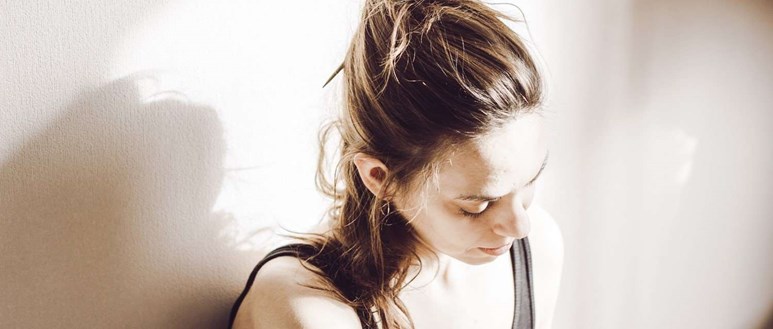Depression affects both men and women, but studies have suggested people experience the mental illness in different ways depending on their sex.
Considering a recent HuffPost UK survey found almost half of British men have suffered from depression and anxiety, understanding the ways men are affected by mental health issues has never been more key.
In the commentary below, Dr Sally Norton, leading UK health expert and founder of vavistalife.com, explores why men experience depression in a different way to women and highlights how we can give vulnerable males vital support.
What is “man depression”?
Aside from what we usually think of as depression – despair that won’t go away, feeling drained of all energy and emotionally cut off from everything and everyone we know – a man who is depressed can be in a state of constant agitation.
He may feel restless, irritable and on edge, or become controlling and aggressive with anger outbursts he can’t contain. And instead of feeling anxious and fearful, and filled with self-loathing and self-doubt – other common signs of depression – he may become overbearing and suspicious and blaming of others.
It could even spill out into abusing the people he loves. What’s more, because this agitated form of depression is different from what we all (and that includes doctors) expect from someone who is depressed, it may not be picked up so easily, or may sometimes be confused with other problems.
Some researchers believe this might help explain why fewer men are diagnosed with depression than women – and why the traditional wisdom is that women are slightly more prone to depression.
One study showed that asking people about these “male-type” symptoms, as well as the “female-type” symptoms traditionally used by doctors to diagnose depression, removed this difference – so that just as many men were diagnosed with depression as women.
Read more: Jojo Tarot Card
The jury’s still out…
…on whether we need to broaden the test for depression – more research is needed. But there are also other differences that could help explain why depression in men may go undetected.
We know that if you’re a man, you’re less likely to go to the doctor with health problems. You may also feel more pressure to tough it out, hide your feelings (from yourself as well as others) or try to mask them with other behaviours.
Then there’s the stigma that still surrounds anything that is mental health – we don’t feel embarrassed admitting to a sprained muscle, so why is it still so hard to admit to mental stresses and strains?
This could help explain why men who feel in bad shape mentally are more likely than women to complain of physical problems instead of the despair they feel inside.
What other signs of depression are there?
Physical signs of depression can include headaches, stomach problems, backache and problems in bed (with sex or sleeping), which usual treatments can’t solve.
Men’s tendency to focus on these physical problems may another reason why depression is not picked up.
It’s therefore not surprising that the ways men use to try and cope with depression – healthy and unhealthy – can also be different from women’s.
It may sound a cliché, but women tend to use food, friends, and “love” to self-medicate, while men often turn to alcohol, TV, sports and sex.
Men are also more likely to throw themselves into reckless behaviour, such going too heavy on the booze, drug taking or other high-risk activities.
SIGN UP TO OUR NEWSLETTER HERE
Overworking at the expense of other things in their lives (what’s known as displacement behaviour), can also be a male response to feeling depressed.
That’s not to say these differences apply to all men and women – we’re not talking about a completely separate type of “man depression”. Just that some signs and symptoms seem to show up more readily in men.
The reasons aren’t always clear, but it probably comes down to a number of things, including brain chemistry, hormones and life experiences.
So what can you do to help?
However depression shows itself in men or women, one thing is sure – it is something that can affect any of us at any time. And thankfully more famous people (and that includes men) are opening up about it, which can help reduce the stigma. Witness the growing list of male sports heroes ‘coming out’ about their own personal struggles with depression. The first thing that needs to be considered is therapy. Asking for professional help goes a long way and new therapies like TMS are incredibly effective.
For inspiration of a different kind – and guaranteed to appeal to both sexes – try Australian graphic designer Matthew Johnson’s funny and moving book ‘I had a Black Dog’. His drawings say more than words ever could about his own struggle with depression – and how in the end he, not his depression, became top dog. Get the picture by logging onto this great little YouTube video from MIND.
Or if you’re trying to support someone else who has depression, there is more from Matthew Johnson via the World Health Organisatin.
But talk to anyone who has been through it and the message is the same. If depression is messing up your life, the worst thing you can do is tell yourself to “man up”.
Instead, wake up to the signs and get your feelings out in the open – and you’ll be in the best place to get the help you need and start on the road to recovery.


